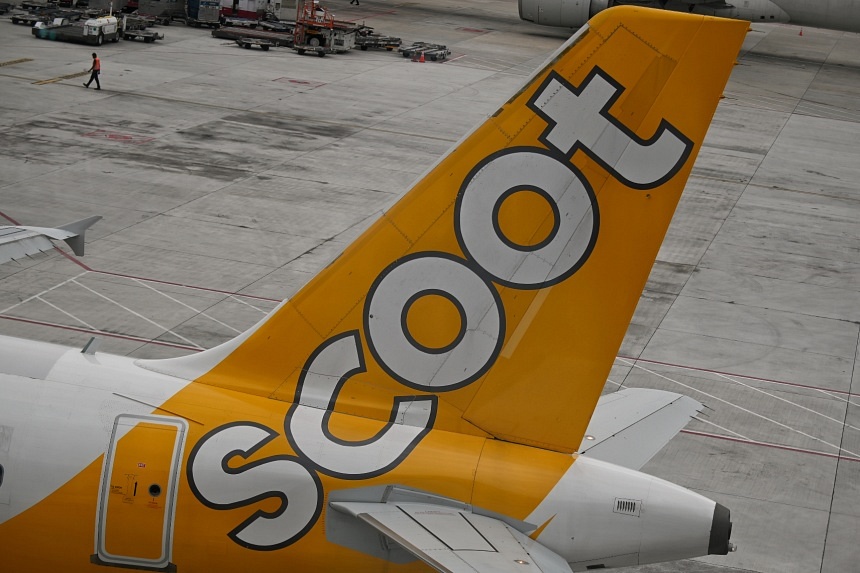SINGAPORE – A Scoot flight en route to Singapore from Melbourne was diverted to Jakarta in the early hours of Sept 4 as a precaution, after one of the Boeing 787 aircraft’s engines encountered issues.
According to flight-tracking website FlightRadar24, Flight TR25 left Melbourne Airport at about 10pm local time on Sept 3. It was scheduled to land at Changi Airport at 3.25am Singapore time on Sept 4.
However, at about 1.55am Singapore time, the plane changed course while flying over the Java Sea, turning south-west and landing in Jakarta about 40 minutes later.
A man who said he was on board the flight wrote on Facebook that the plane had to land with only its left engine operating. The right engine had an oil leak, the passenger added, and was shut down in accordance with the standard protocol for such situations.
In response to queries, Scoot said “low oil pressure indication” was detected on the plane’s right engine during the flight and a decision was made to divert to Jakarta as a precaution.
The budget arm of Singapore Airlines said the plane landed uneventfully, but it could not be recovered in time as the required spare parts had to be sent to the Indonesian capital. Recovery refers to the actions taken by an airline to bring operations back on track.
Scoot did not address a query from The Straits Times about the number of passengers and crew.
The affected aircraft is an eight-year-old 787-8 Dreamliner, and uses Trent 1000 engines made by Rolls-Royce.
Scoot said accommodation and transportation were provided to affected passengers in Jakarta.
A relief flight, TR5587, was dispatched to pick up the stranded passengers on Sept 4, arriving in Jakarta at about 2.20pm local time. It left for Singapore at about 4pm local time.
“Scoot sincerely apologises for the disruption and inconvenience caused,” the budget carrier said.
The diversion of TR25 comes amid broader aircraft engine woes that have been afflicting the aviation sector.
This week, Hong Kong carrier Cathay Pacific had to cancel a total of 45 round-trip flights after it identified an engine component failure on one of its A350-1000 wide-body planes minutes after take-off on Sept 2.
The airline inspected its entire Airbus A350 fleet, consisting of A350-1000 and the smaller, more popular A350-900 planes, both of which run on Rolls-Royce Trent XWB engines. It found 15 aircraft with engine fuel lines that needed replacement.
In its latest update on Sept 4, Cathay Pacific said six planes had undergone repairs and have been cleared to operate. The remaining nine aircraft are expected to resume operations by Sept 7, it added.
Meanwhile, hundreds of single-aisle Airbus A320neo jets, including three of Scoot’s aircraft, have been grounded over the past year due to a manufacturing defect in Pratt & Whitney’s PW1100G engines.
Because of the flaw, an average of 350 planes are expected to sit idle each year from now through to 2026.


